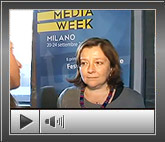| Web 2.0, semantic web, marketing, behavioural advertising | 23 Jul 2009 |
| Web 1.0, Web 2.0, Web 3.0 by Alex.Giorgi | Comment (0) |
What distinguishes Web 1.0 from Web 2.0 and the now imminent Web 3.0? The way in which users get and use the online information and how marketing professionals can derive information from this and take action. Web 1.0 was mainly a web for reading - it was static and somewhat mono-directional. Businesses presented their products and users read and, sometimes, contacted them. Ignoring the medium itself, it was more or less like an advertisement on the street or in a newspaper. It was Web 2.0 that changed user behaviour. With reading as well as writing, the web has become bi-directional. You read, but you also write. You can generate content (so-called user-generated content). Businesses must adapt to this as they're no longer the only ones ‘invested' with the power to disseminate information online. For marketing professionals, this is one of the biggest opportunities ever, and not at all the problem that it is sometimes regarded as. Web 3.0 will be (is?) the semantic web, that is, the meaning of the data is defined. It will be about personalization (e.g. iGoogle), behavioural advertising (smart, targeted advertising) and intelligent searches (e.g. the latest search engine on the web, Bing, calls itself a ‘decision' engine). For marketing professionals, the times are, and will, be good. There's no doubt. Web monitoring, Web 2.0, social media marketing, listen & act.










